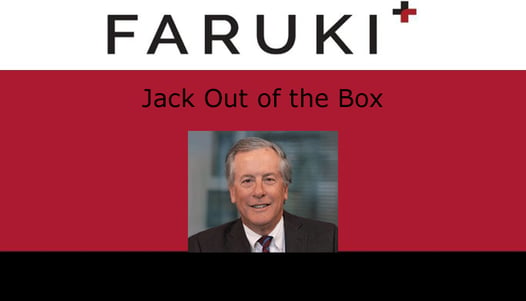- January 8, 2024
- Jack Greiner
- Jack Out of the Box
 I have to admit, I never thought I'd be writing a column with this headline. But the First Amendment pops up in all sorts of unusual places I suppose.
I have to admit, I never thought I'd be writing a column with this headline. But the First Amendment pops up in all sorts of unusual places I suppose.
Joseph Gow was fired late last year from his job as Chancellor of the University of Wisconsin-LaCrosse when it surfaced that he and his wife had produced and starred in pornographic videos available online. Apparently, Gow and his wife would shoot videos cooking vegan meals with porn actors. Presumably the second course caused the problem.
Gow has contended that the firing violated his First Amendment rights. This begs the question whether Gow's speech is protected. As one might imagine, there is not a lot of precedent.
But while there may not be many instances that match the precise facts presented by the Gow, the question of the extent to which a public e mployer may discipline an employee for that employee's speech isn't new. Public employees are something of a hybrid. On the one hand, they are employed by institutions that must comply with the First Amendment. So, a public employee has protection that a private employee does not enjoy. Simply put, if Gow had been the Chancellor of a private university, the First Amendment wouldn't be an issue. But, as a public employee, it comes into play.
On the other hand, Gow is an employee, and thus subject to some level of control by his employer. If Gow decided to spend the day marching through the office with a large banner that distracted other employees from their jobs, the University could likely put a stop to it.
And that is the crux of the analysis. An employee has a right to speak out on matters of public concern or importance, so long as that speech is not outweighed by the employer's interest in an efficient, disruption free workplace. Under this framework, Gow would probably lose on both points.
On the first point, "speech on a matter of public concern," is defined as speech "relating to any matter of political, social or other concern to the community." So, does cooking with porn satisfy this definition? Likely not. The protection for employee speech is primarily in place to allow employees to speak out on political issues. The notion is that public employees shouldn't sacrifice their rights as citizens simply because of the vagaries of their employment. But that protection only goes so far. And it likely doesn't extend to pornography.
Gow would also lose based on the second point. It's likely that a Chancellor taking a starring role in online porn would cause disruption in the workplace to a degree that the employer would reasonably be expected to do something about it. According to University President Jay Rothman, "Upon my recommendation, the UW Board of Regents today terminated Dr. Joe Gow from his position as chancellor of UW-La Crosse effective immediately. In recent days, we learned of specific conduct by Dr. Gow that has subjected the university to significant reputational harm. His actions were abhorrent."
No doubt, Gow would consider Rothman a prude, but it's hard to imagine this type of conduct not being a workplace distraction. All in all, Gow should think long and hard before he files suit.
